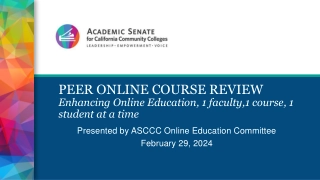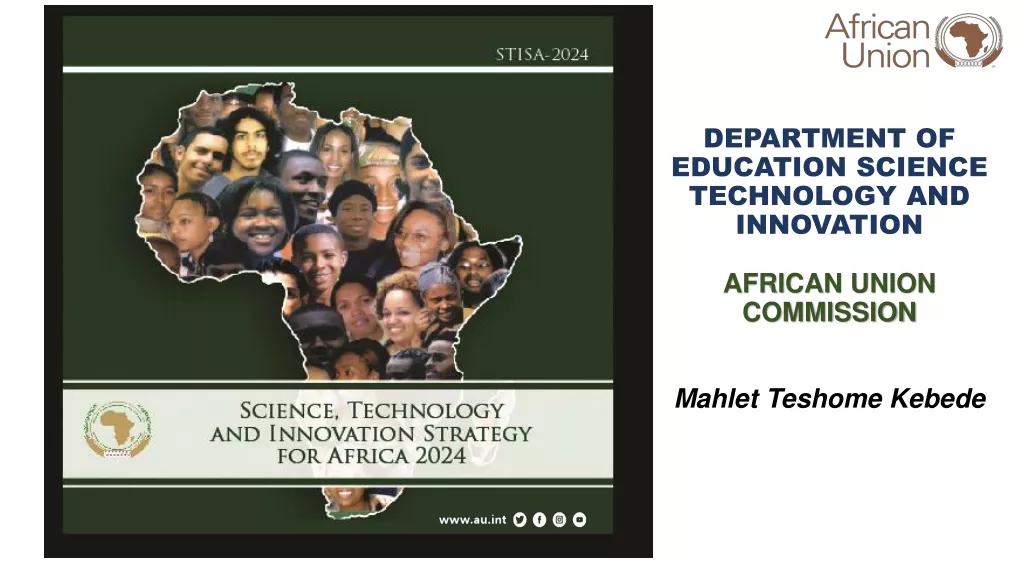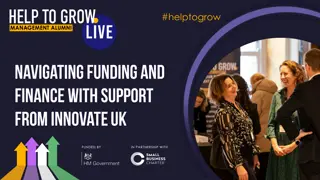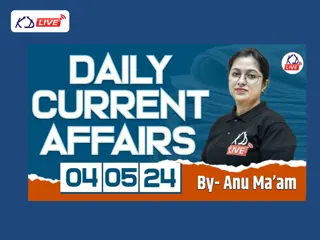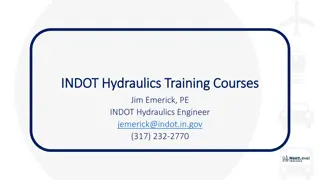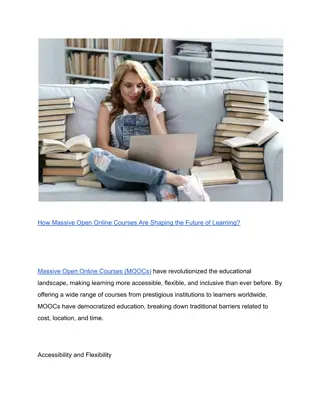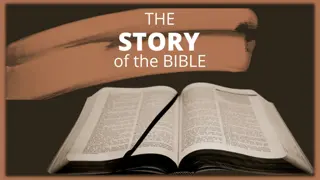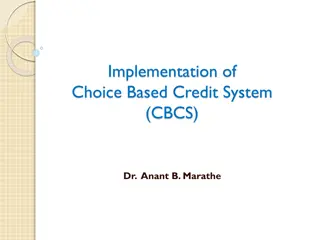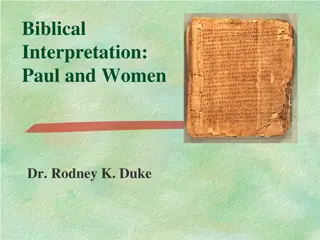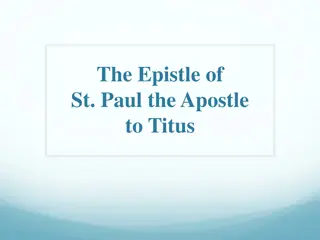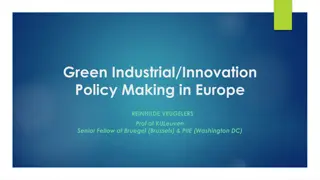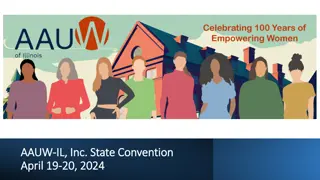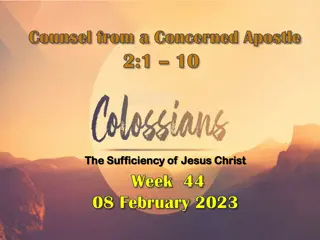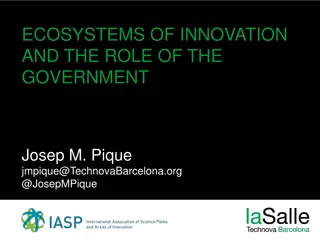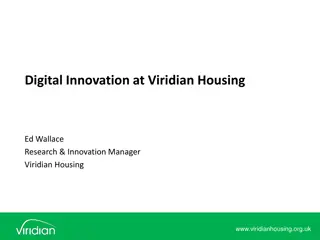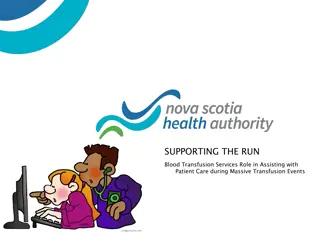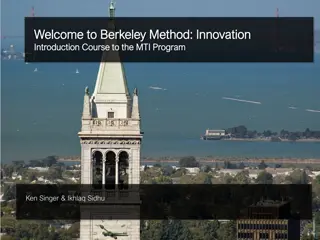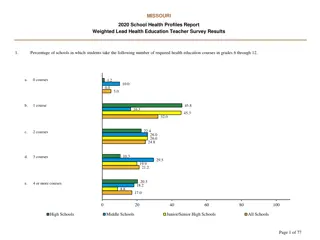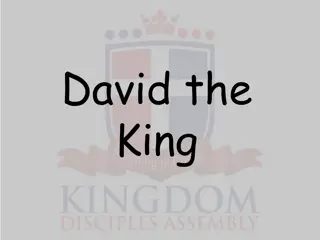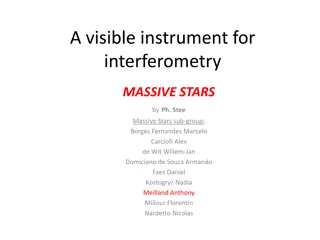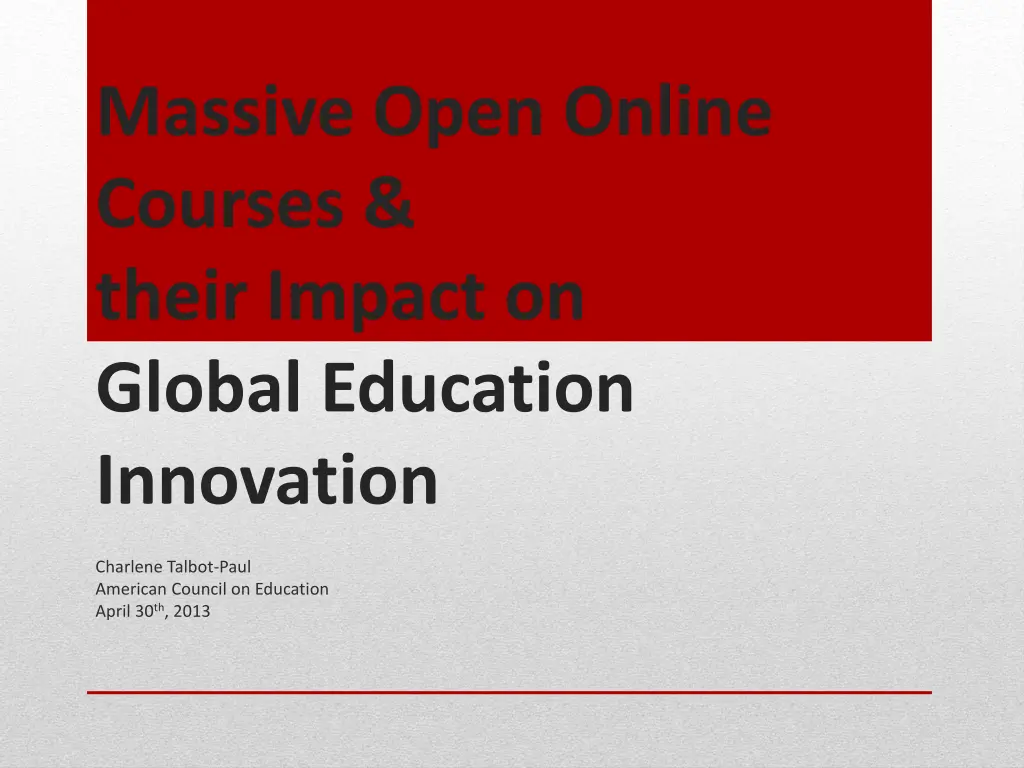
Impact of Massive Open Online Courses on Global Education Innovation
Explore the impact of Massive Open Online Courses (MOOCs) on global education innovation as discussed by Charlene Talbot-Paul from the American Council on Education. Discover how MOOCs are improving access to post-secondary education, influencing policy, providing leadership programs, and fostering international engagement. Dive into research on MOOC demographics, pedagogies for student success, credit evaluation, and pathways for academic credit. Delve into the role of MOOCs in higher education and the strategies to close the attainment gap.
Download Presentation

Please find below an Image/Link to download the presentation.
The content on the website is provided AS IS for your information and personal use only. It may not be sold, licensed, or shared on other websites without obtaining consent from the author. If you encounter any issues during the download, it is possible that the publisher has removed the file from their server.
You are allowed to download the files provided on this website for personal or commercial use, subject to the condition that they are used lawfully. All files are the property of their respective owners.
The content on the website is provided AS IS for your information and personal use only. It may not be sold, licensed, or shared on other websites without obtaining consent from the author.
E N D
Presentation Transcript
Massive Open Online Courses & their Impact on Global Education Innovation Charlene Talbot-Paul American Council on Education April 30th, 2013
1. Improving access to and success in post-secondary education for all students, including non-traditional and underrepresented minority populations; 2. Influencing policy issues surrounding higher education and working with researchers, policy makers and foundations; 3. Providing leadership programs to help institutions leverage the rapidly changing post-secondary education environment and meet the need for diverse and skilled leaders; and 4. Fostering international engagement among higher education institutions. ACE Role in Higher Education
The demographics of the current reach of MOOCs and identify effective approaches, pedagogies, and practices that encourage student success in this new learning mode; The application of the ACE CREDIT evaluation process to specific MOOCs to determine the criteria necessary to be able to recommend credit for them; Working with select institutions to create viable pathways to apply extra-institutional academic credit toward degree completion; and Engaging higher education leaders to think proactively about this new learning space and guide a national dialogue about potential new models to close the attainment gap. ACE -MOOC Research
The Organization Learning Outcomes and Evaluation Tools Instructional and Training Development Personnel Academic Records Learning Environment Criteria to Determine Eligibility to Participate
Depth & Breadth of Content Learner Identity & Verification Learning Outcomes Applicability to Postsecondary Programs Assessments Academic Integrity Evaluative Criteria
Peer Assessment Auto-graders Proctored Testing Centers Virtual Proctoring Assessments
The world is your new classroom
Intellectual Neo- Colonialism? Language Cultural Diversity Incompatible Learning Styles Instructional Design Critical Thinking Retention Peer Grading Challenges
1995 World Bank Education Project Sub-Saharan Africa Builds own courses offered in English, French & Portuguese 4,000 students per year Develops educational infrastructure and capacity African Virtual University
Scalable online education Online classes designed for Global Audiences World Degrees (International University Partnerships) MOOCs Drive Education Innovations
Doctoral Masters Bachelors Associates High School/GED Education Structure

